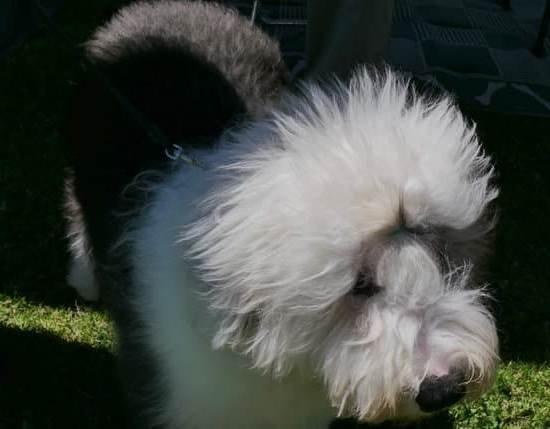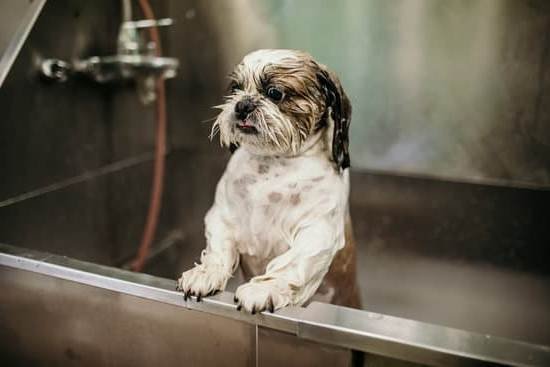Best Way To Potty Train A Bernese Mountain Dog Puppy
There is no one-size-fits-all answer to potty training a Bernese Mountain Dog puppy, but there are a few general tips that will help you successfully potty train your dog in a relatively short amount of time.
1. Start with a consistent routine. Bernese Mountain Dogs are very smart dogs and they will quickly learn what is expected of them when it comes to potty training. Try to establish a routine for your puppy and stick to it as closely as possible. This means taking your puppy outside to potty at the same time every day and always following the same sequence of commands (e.g. walk, sit, pee, etc.).
2. Be patient. Bernese Mountain Dog puppies can be a bit slow to potty train, so you will need to be patient and consistent with your training methods. Don’t get discouraged if your puppy has an accident or two – just keep practicing and be consistent with your commands.
3. Make sure your puppy has plenty of opportunity to relieve himself outdoors. One of the best ways to potty train a Bernese Mountain Dog puppy is to provide plenty of opportunity for him to relieve himself outdoors. This means taking your puppy outside frequently – at least once every hour – and making sure he has a designated spot to potty.
4. Reward your puppy for pottying outdoors. When your puppy successfully eliminates outdoors, be sure to give him lots of praise and rewards. This will help to reinforce the desired behavior and make potty training a Bernese Mountain Dog puppy that much easier.
Dog Potty Trainer Spray
There are many reasons why you might want to use a dog potty trainer spray. Perhaps you have a new puppy and you want to ensure that they learn to use the bathroom outside quickly and correctly. Or maybe you have an older dog that has been having trouble getting the hang of going outside to pee. In any case, a dog potty trainer spray can be a helpful tool in housebreaking your furry friend.
There are many different brands and types of dog potty trainer sprays on the market, but they all work in more or less the same way. The spray is applied to the areas where you want your dog to pee and poo, and the scent of the spray helps to mark these spots as places that your dog should use for doing their business. Dogs are naturally drawn to urine and feces, so the scent of the spray will help to encourage them to go in the right spot.
Most dog potty trainer sprays are made with a combination of essential oils and pheromones, both of which are known to be attractive to dogs. The essential oils help to mask any unpleasant smells that might be associated with pee or poo, while the pheromones help to encourage your dog to go in the right spot.
If you are using a dog potty trainer spray, it is important to be consistent with your applications. You should apply the spray every time your dog goes to the bathroom, whether they pee or poo. This will help to create a strong association between the scent of the spray and the act of going to the bathroom, and your dog will soon learn to use the spray as a cue to do their business.
If you are using a dog potty trainer spray, it is also important to be patient. Housebreaking a dog can take time, and there is no guarantee that your dog will learn to use the bathroom outside overnight. However, with patience and persistence, a dog potty trainer spray can be a very effective tool in housebreaking your pet.
At What Age Can A Dog Be Fully Potty Trained
There is no one definitive answer to this question. Dogs of different breeds, sizes, and temperaments will reach potty training maturity at different ages. However, there are a few guidelines that can help you determine when your dog is ready to be fully potty trained.
Generally speaking, dogs can be fully potty trained by around six months of age. However, some dogs may not be ready for full independence until they are a year or even older. Large and giant breeds often take longer to train than smaller breeds. Dogs that have been raised in a housetrained environment may take less time to train than dogs that have not been exposed to house training.
There are a few things you can do to help your dog reach potty training maturity more quickly. Make sure your dog has plenty of opportunity to relieve himself outdoors. Frequent potty breaks will help your dog learn where to go to the bathroom. Make sure to praise your dog when he eliminates in the proper place. Also, be sure to provide plenty of opportunities for your dog to exercise, as a tired dog is less likely to have accidents indoors.
Ultimately, it is up to you to decide when your dog is ready to be fully potty trained. If you are not comfortable allowing your dog to roam the house unsupervised, then continue to house train him until you feel comfortable doing so. However, if you are consistent with house training and provide your dog with plenty of opportunities to relieve himself outdoors, he should be able to be fully potty trained in a relatively short amount of time.
Is It Easier To Potty Train A Second Dog
When potty training a dog, one of the biggest challenges is figuring out how to get your pup to go to the bathroom in the right spot. And if you’re potty training more than one dog, that challenge can seem even bigger. But is it actually easier to potty train a second dog
The answer to that question is a little complicated. On one hand, if your first dog is already potty trained, it will be easier to train your second dog because they will already know how to do it. But on the other hand, if your first dog is still potty training, it will be more difficult to train your second dog because they will have to learn how to do it in addition to following your first dog’s cues.
So overall, it really depends on your individual situation. If you’re potty training your first dog and you get a second dog, it will be more difficult, but if your first dog is already potty trained, it will be easier. However, if you’re not potty training your first dog and you get a second dog, it will be easier because the second dog will be able to follow the first dog’s cues.
So if you’re considering potty training a second dog, it’s important to think about your individual situation and how potty training your first dog is going. And if you need help, don’t hesitate to ask a professional trainer for advice.
How Long Until Dog Is Potty Trained
It can take some dogs up to 12 weeks to be potty trained, while others may take only a few weeks. The amount of time it takes to potty train your dog largely depends on how consistent you are with the training, and how much your dog learns from each potty training session.
There are a few things you can do to help speed up the potty training process:
1. Make sure your dog has plenty of opportunities to go outside to pee and poop.
2. Take your dog for walks or play with them in the yard regularly.
3. Reward your dog for going potty in the right spot.
4. Be patient and consistent with your training.
If you’re having trouble potty training your dog, it’s best to consult with a professional trainer or behaviorist.
“

Welcome to the blog! I am a professional dog trainer and have been working with dogs for many years. In this blog, I will be discussing various topics related to dog training, including tips, tricks, and advice. I hope you find this information helpful and informative. Thanks for reading!





